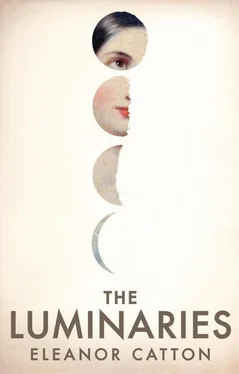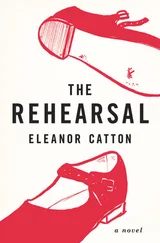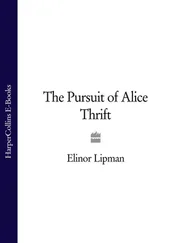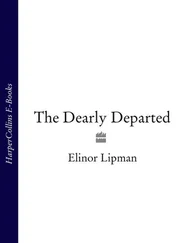‘You’ve seen her—Lydia—here? She’s here?’
The name was familiar in his mouth: so he knew her, Balfour thought; and he must have known the dead man, too. ‘Ay,’ he said aloud, careful not to let any trace of his suspicion show. ‘Coming off the packet steamer, Thursday. Dressed up to the nines, she was; swarming down the ladder like a regular salt. Dress in a knot over her shoulder, drawers gathered up in her hand. All the hoops and buckles on display. I’m blowed if I know how Crosbie Wells landed a piece like her—I’m blowed.’
Lauderback was still looking shocked. ‘Lydia Wells, wife of Crosbie Wells.’
‘Ay—so her story goes.’ Balfour studied his acquaintance, and then suddenly put down his glass and leaned forward. ‘Look here, Mr. Lauderback,’ he said, placing his palm upon the table between them. ‘Seems you’re holding on to something that’s preventing you from talking plain. Why don’t you share it?’
This request, so simply made, unlocked a dam in Alistair Lauderback’s heart. As is the case for so many governing men, who are accustomed to constant service of the highest quality, and who rarely find themselves alone, Lauderback tended to think of his attendants in utilitarian terms. Certainly Balfour was a nice enough chap—shrewd in his business, cheerfully intemperate, and ready with a laugh—but his value as a man was equal to the value of the role he filled: in Lauderback’s mind, he was replaceable. What lay beyond his most immediately visible qualities, the politician had never troubled himself to learn.
It is always a starkly private moment when a governor first apprehends his subject as a man—perhaps not as an equal, but at least as a being, irreducible, possessed of frailties, enthusiasms, a real past, and an uncertain future. Alistair Lauderback felt that starkness now, and was ashamed. He saw that Balfour had offered friendship, and he had taken only assistance; that Balfour had offered kindness, and he had taken only the benefit of use. He turned to his aides.
‘Fellows,’ he said, ‘I want to talk to Balfour man to man. Go on and leave us for a spell.’
Augustus and Jock rose from the table (Balfour observed with a flash of competitive triumph, unusual for him, that they both looked very put out) and left the dining room without a word. When they had gone, Lauderback exhaled deeply. He poured himself another measure of wine, but instead of taking a draught he held the glass between the heels of his hands, and stared at it.
‘Do you miss England, Tom?’ he said.
‘England?’ Balfour raised his eyebrows. ‘Haven’t set foot in sunny England since—well. Since before my hair was grey!’
‘Of course,’ Lauderback said apologetically. ‘You were in California. I had forgotten.’ He fell silent, chastising himself.
‘Round here, everybody’s always talking about home,’ said Balfour. ‘Can’t help but think that the pleasure’s in the missing.’
‘Yes,’ said Lauderback, very quietly. ‘Just so.’
‘Why,’ Balfour went on, encouraged by the other man’s assent, ‘most boys keep one foot on the boat, you know. Head back as soon as they’ve made their dust. What do they do? Buy a life, find a sweetheart, settle down—and then what do they dream about? What do they wish for? They dream about the diggings! Back when they could hold the colour in their hands! When all they did here was talk about home. Their mothers. Yorkshire puddings. Proper bacon. All of that.’ He tapped the base of his glass upon the table. ‘England—that’s the old country. You miss the old country. Of course you do. But you don’t go back.’
While he was waiting for the politician to begin speaking, he looked around him. It was well after ten o’clock in the morning, and the dinner crowd had not yet begun to trickle in—which they would presently, for it was Saturday, and a Saturday following a week of rain. The boy at the hearth had gone, taking the rack of hot irons with him; the cook had put away his playing cards, and was hacking at a bone; the scrubbing boys had surfaced from their quarters and were stacking plates and making noise. The clergyman at the table next to theirs was still sitting at his coffee, which had long since cooled. His gaze was focused on the print of the pamphlet he held in his hand and his mouth was pursed in concentration. It was clear that he was not paying his neighbours the slightest attention—but even so, Balfour brought his chair a little closer to Lauderback’s, so that the politician would not have to speak so loud.
‘Lydia Wells,’ Lauderback began, ‘is the mistress of an establishment in Dunedin whose name I should like only to say once, if you don’t mind. The place is called the House of Many Wishes. Stupid name, really. I suppose you’ve heard of it.’
Balfour nodded, but only slightly, so as to imply neither total familiarity nor total ignorance. The establishment to which Lauderback referred was a gambling house of the most decadent order, famous for its high stakes and its dancing girls.
‘Lydia was—a fond acquaintance of mine at that establishment,’ Lauderback continued. ‘There was no money involved. No money changed hands at all—you must understand that. Understand it because it’s the truth.’ He tried to glare at Balfour, but the shipping agent’s eyes were lowered. ‘Anyway,’ he said after a moment. ‘Whenever I was in Dunedin I would pay a call on her.’
He waited, challenging the other man to speak, but Balfour remained silent. After a moment he continued.
‘Now, when I first came to your offices, Tom, you’ll recall that Godspeed was in need of a master. You didn’t want her, and in the months after that I had a fair bit of trouble finding a man I could count on to take up the contract. She was anchored in Dunedin then. Lady needed caulking, and I was out of pocket for repairs on Virtue , as you might remember. All sorts of bills to pay. In the end I made a snap decision, and leased Godspeed privately to a chap named Raxworthy who wanted to set up a run between Australia and the Otago fields. He was a Navy man. Retired, of course. He’d commanded a corvette in the Crimean War—up in the Baltic—and he had a Victoria Cross to show for it. He’d been everywhere. Used to say that if he’d been trailing a rope behind him, he could have tied a knot right around the world. He’d been discharged from the navy on account of gout—bad enough to get his long-term leave, which was due to him anyhow, but not quite bad enough to make him want to swallow the anchor altogether. Godspeed suited him—he’s an old-fashioned type, you know, and she’s an old-fashioned girl.
‘I went back to Akaroa after that, and didn’t hear from Raxworthy for a spell. But I was back and forth down the island fairly frequently, and the next time I called in at Dunedin, I found myself in a bit of trouble. There was a husband. Lydia had a husband. He’d come home while I was gone.’
Balfour narrowed his eyes. ‘Crosbie Wells?’
Lauderback shook his head. ‘Not him. This man was the brute you know as Carver. To me he was Wells. Francis Wells.’
Balfour nodded slowly. ‘But now the very same woman’s saying she’s the wife of Crosbie Wells,’ he said. ‘Somebody’s lying somewhere.’
‘In any case—’
‘Either lying about a marriage,’ Balfour said, ‘or lying about a name.’
‘In any case,’ Lauderback said with annoyance, ‘that doesn’t matter—not just yet. You have to hear it in the proper order. Back then, I didn’t even know Lydia was married. When she was at the gambling house she used her maiden name, you see—Lydia Greenway, she was; I never knew her as Lydia Wells. Of course, once the husband showed up I saw that I was in the wrong. I tried to back right off. Tried to settle things the proper way. But the chap had me in a bit of a corner. I’d just taken up the Superintendency; I was a Councilman. I was recently married myself. I had my reputation to think about.’
Читать дальше












